In a world increasingly concerned about our environmental footprint, adopting sustainable food practices is more vital than ever.
This guide offers ten easy yet impactful changes you can make in your kitchen to help create a greener plate.
From sourcing local ingredients to reducing waste, each practice not only benefits the planet but also enhances your culinary experience. Let’s embark on a delicious journey towards eco-friendly, healthy eating!
Contents
- 1. Buy Local and Seasonal Produce
- 2. Start a Home Garden
- 3. Reduce Food Waste
- 4. Embrace Plant-Based Meals
- 5. Choose Eco-Friendly Packaging
- 6. Support Sustainable Brands
- 7. Practice Mindful Eating
- 8. Cook in Batches
- 9. Opt for Organic Ingredients
- 10. Educate Yourself and Others
1. Buy Local and Seasonal Produce
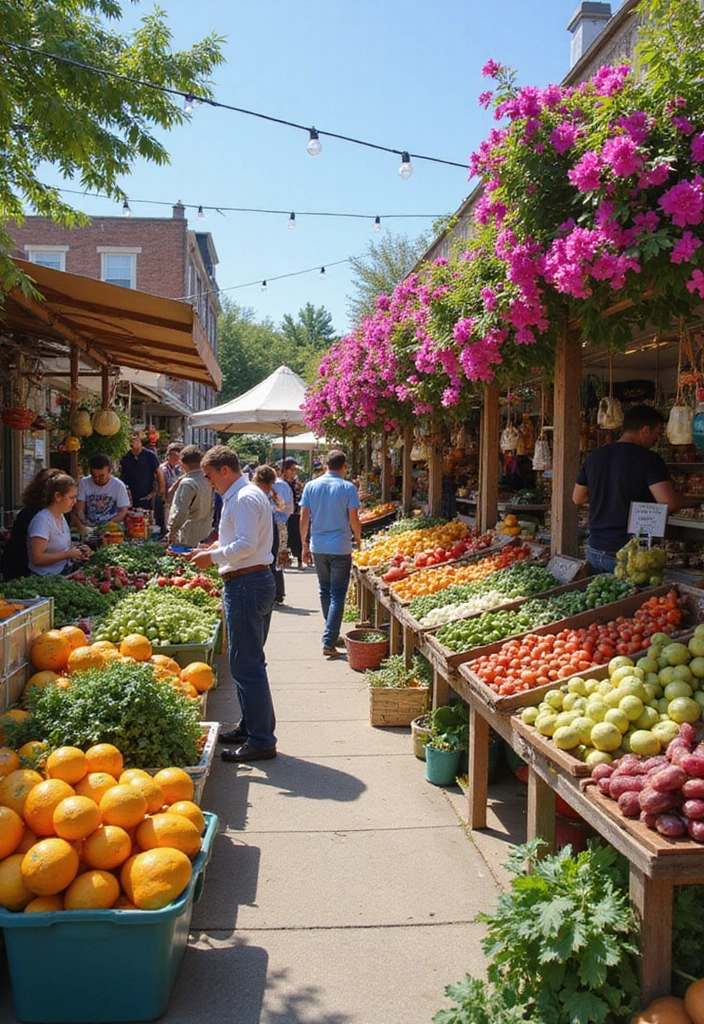
Embrace the vibrant flavors of your region by opting for local and seasonal produce. This practice not only supports local farmers but also significantly reduces the carbon footprint linked to the transportation of food over long distances. Seasonal fruits and vegetables tend to be fresher, tastier, and packed with essential nutrients, making them a healthier choice for your meals.
To make the most of these offerings, consider subscribing to a local produce subscription box that delivers fresh, seasonal items right to your doorstep. Additionally, you can enhance your shopping experience by using reusable produce bags to reduce plastic waste while supporting sustainable practices. Explore local farmer’s markets or join a community-supported agriculture (CSA) program to fully enjoy the best that your area has to offer!
2. Start a Home Garden
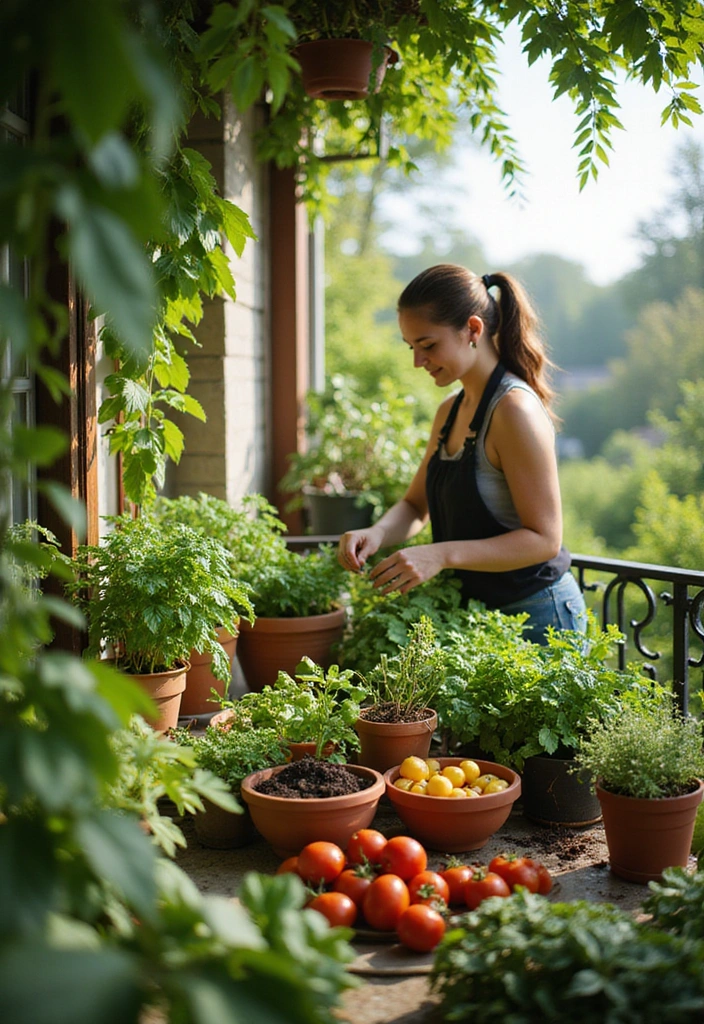
Cultivating your own herbs and vegetables can be an incredibly rewarding and sustainable endeavor. With just a few pots on your balcony or a small patch in your yard, you can grow fresh produce right at home.
To get started, consider investing in an herb garden starter kit, which provides all the essentials to kick off your gardening journey.
For healthy plants, you’ll need quality soil, so be sure to grab some soil and compost to ensure your herbs thrive.
Starting with easy-to-grow herbs like basil, parsley, and mint not only enhances the flavor of your dishes but also helps reduce your carbon footprint. To make your garden even more fruitful, consider using organic seeds, which will yield bountiful harvests for countless recipes.
3. Reduce Food Waste
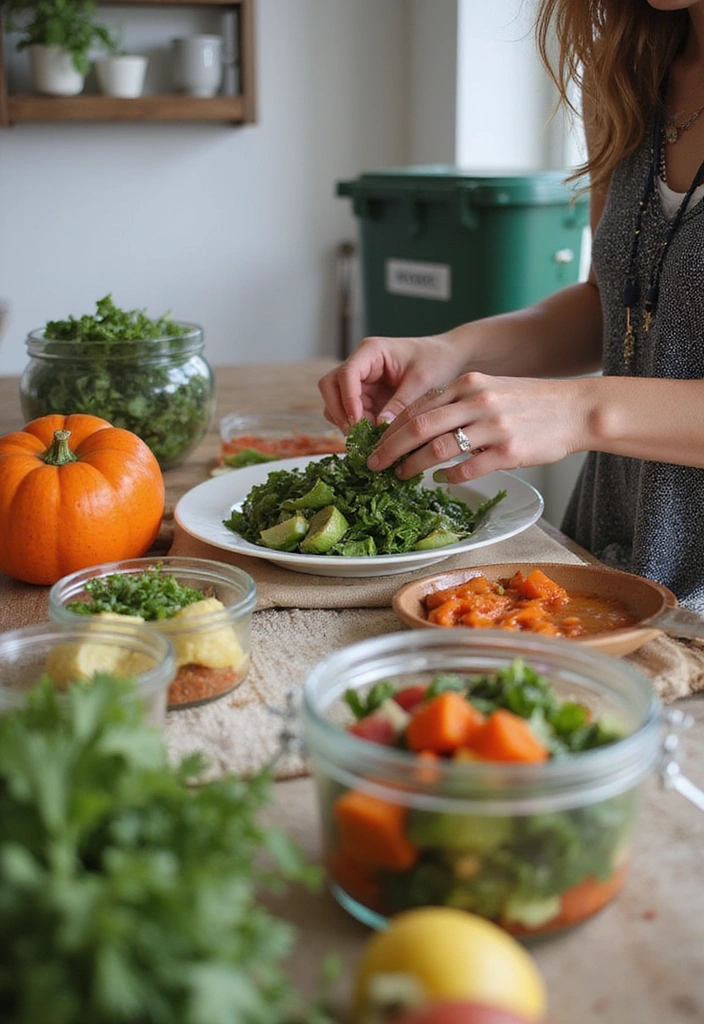
Reducing food waste stands out as one of the most effective sustainable practices you can embrace for a greener lifestyle.
Start by planning your meals carefully and investing in quality food storage containers to ensure your ingredients stay fresh longer. This simple step can significantly cut down on spoilage.
Additionally, get creative with your leftovers! You can turn vegetable scraps into a delicious broth or repurpose stale bread by baking it into crunchy croutons.
Consider using a compost bin to recycle food scraps and contribute to a healthier environment.
By being mindful of your purchases and how you utilize your food, you’ll not only save money but also play an essential role in fostering a more sustainable food system. To keep your efforts organized, a meal prep planner can be a valuable tool in helping you make the most of what you have.
4. Embrace Plant-Based Meals
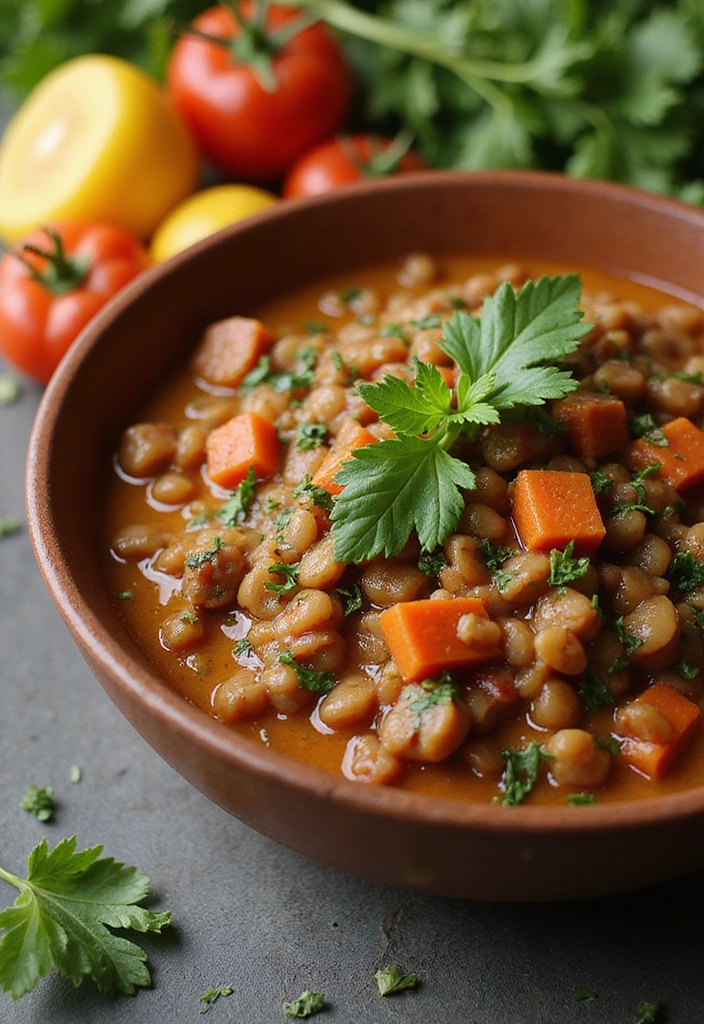
Incorporating more plant-based meals into your diet is a delicious and impactful way to promote sustainability.
Adopting a plant-based diet not only contributes to lower emissions but also offers a wide array of flavors and textures that can rival traditional meat-based meals. Dive into the world of legumes, grains, nuts, and seasonal vegetables to craft hearty and satisfying dishes. For example, a warming lentil stew brimming with vibrant veggies can be both nutritious and comforting.
To help you on this culinary journey, consider picking up a fantastic plant-based cookbook filled with creative recipes. You can also stock your pantry with a bulk pack of lentils and grains to ensure you always have the essentials at hand. Additionally, investing in reusable kitchen utensils can enhance your cooking experience while minimizing waste. Embrace these practices for a greener plate!
5. Choose Eco-Friendly Packaging
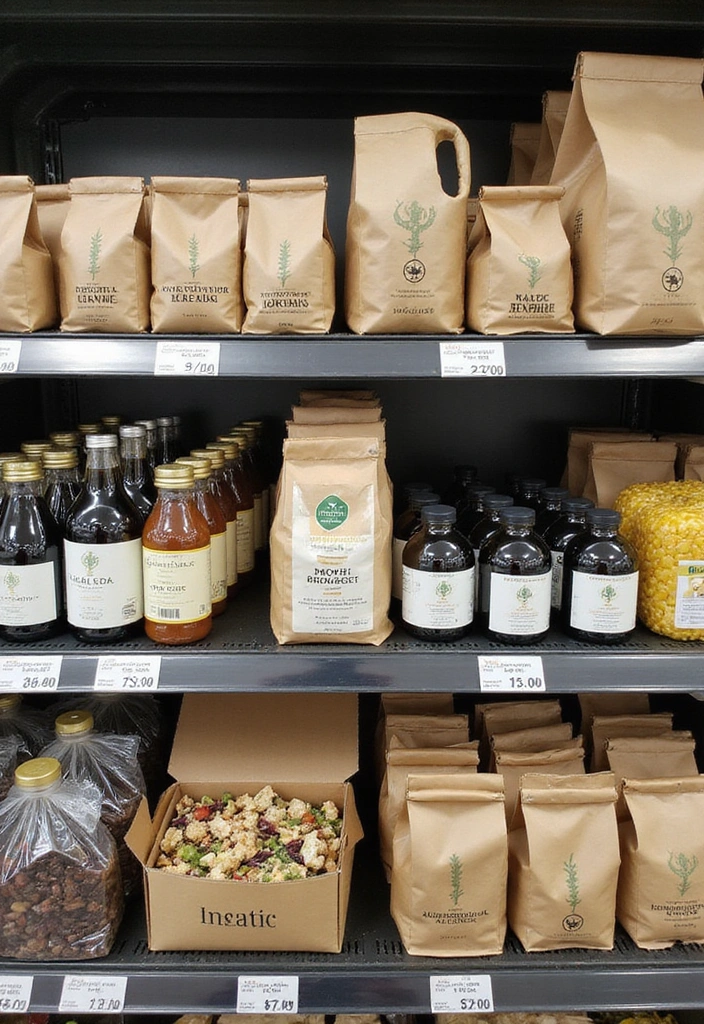
When you’re out shopping, consider selecting products that come in eco-friendly packaging.
Opt for items that are packaged in materials like glass or cardboard rather than plastic. For example, using glass storage containers not only keeps your food fresh but also reduces reliance on single-use plastics.
Additionally, make the switch to biodegradable trash bags for your waste disposal needs, which helps minimize plastic waste in landfills.
Lastly, consider investing in reusable snack bags for on-the-go meals or snacks, promoting a more sustainable lifestyle.
By making these conscious choices, you’re supporting companies that prioritize sustainability and contributing to a healthier planet.
6. Support Sustainable Brands
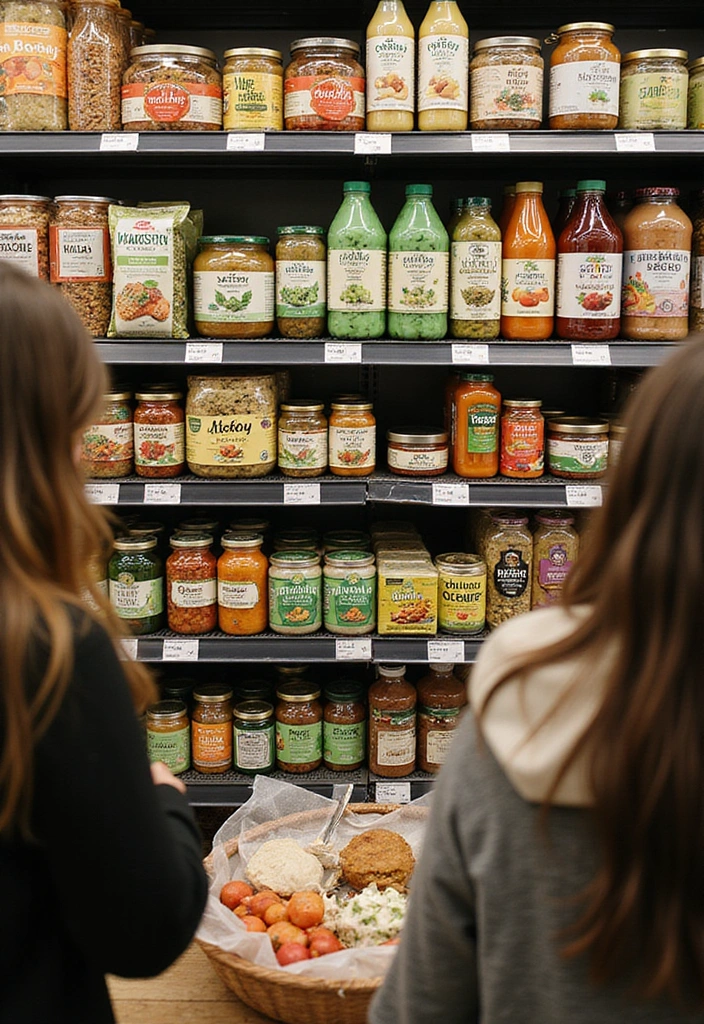
Choose to buy from companies that prioritize sustainable practices and ethical sourcing. Look for sustainable food brands that emphasize transparency in their sourcing methods and demonstrate a commitment to reducing their environmental impact.
By choosing to support these brands, you not only enjoy products that are better for the planet but also encourage a shift towards sustainability in the market.
Additionally, consider investing in eco-friendly kitchen appliances that help reduce energy consumption and waste in your home.
For those looking to simplify their grocery shopping while supporting sustainability, an organic food subscription box can provide you with fresh, ethically sourced ingredients delivered right to your door, making it easier than ever to eat green and support sustainable practices.
7. Practice Mindful Eating
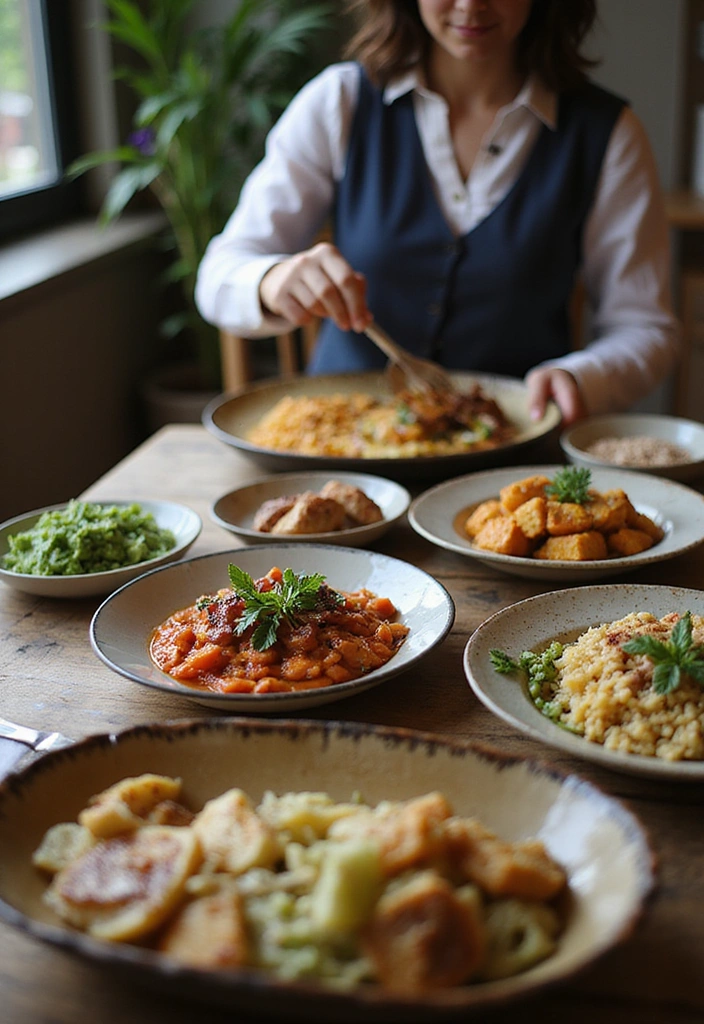
Mindful eating encompasses not only the food you consume but also the manner in which you enjoy it.
By slowing down and truly savoring each bite, you can cultivate a deeper appreciation for your meals and become more aware of their origins. This practice not only enhances your dining experience but can also improve digestion and encourage healthier food choices that support a sustainable lifestyle.
To further enrich your mindful eating journey, consider keeping a mindfulness journal to reflect on your meals and their impact on your well-being.
Additionally, investing in a beautiful dining set can make your meals feel more special and intentional.
Lastly, pairing your meals with a calming cup of organic herbal tea can enhance the experience, grounding you in the moment and promoting a more mindful approach to eating.
8. Cook in Batches
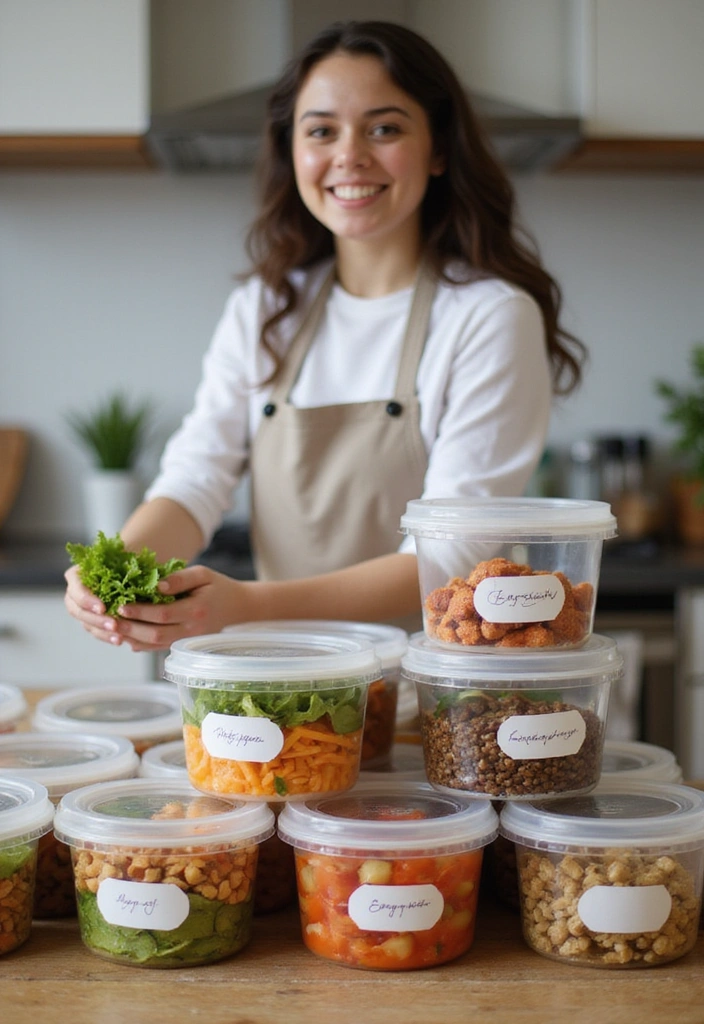
Batch cooking is a fantastic way to save time in the kitchen while also promoting sustainability by reducing food waste and conserving energy. By preparing larger quantities of meals, you can easily freeze or store them for later use, ensuring that you always have healthy options readily available.
To help with this process, consider investing in freezer-safe containers, which are perfect for storing your prepared meals without the risk of freezer burn.
Additionally, a meal prep cookbook can provide you with a variety of delicious recipes that are specifically designed for batch cooking, making it easier to plan your meals effectively.
Lastly, using a kitchen scale can help you measure ingredients accurately, ensuring that you utilize your ingredients efficiently and minimize spoilage. Embracing these practices will not only enhance your cooking experience but also contribute to a more sustainable lifestyle.
9. Opt for Organic Ingredients
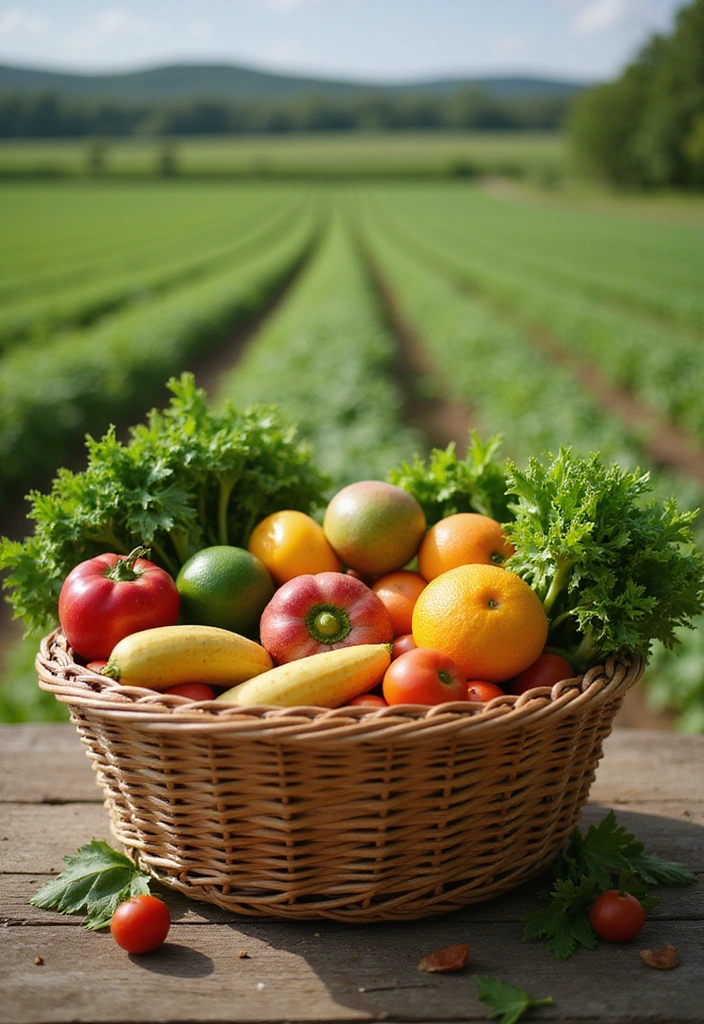
Choosing organic ingredients is a powerful way to support sustainable farming practices that enhance biodiversity and improve soil health. By opting for organic produce, you not only prioritize your own well-being but also contribute to a healthier planet by avoiding harmful pesticides and fertilizers that can wreak havoc on the environment.
To make the transition easier, consider using an organic produce delivery service that brings fresh, organic fruits and vegetables right to your doorstep. Additionally, enrich your culinary skills with an organic cookbook that offers delicious recipes featuring seasonal ingredients. For those looking to dive deeper into sustainable practices, a sustainable agriculture guide can provide valuable insights into the benefits of organic farming. Together, these resources can help you cultivate a greener plate while supporting the environment.
10. Educate Yourself and Others

Knowledge is power when it comes to adopting sustainable food practices, and the first step is to educate yourself. Staying informed about the environmental issues tied to food production will empower you to make better choices.
Consider diving into sustainable living books that can provide valuable insights and practical tips.
Additionally, participating in educational workshops on sustainability can deepen your understanding and connect you with like-minded individuals.
Don’t forget to share your newfound knowledge with others; by inspiring those around you to adopt sustainable habits, you create a ripple effect that contributes to a greener future. Joining a community garden membership can also serve as a hands-on way to engage with the principles of sustainability while fostering community bonds.
Conclusion
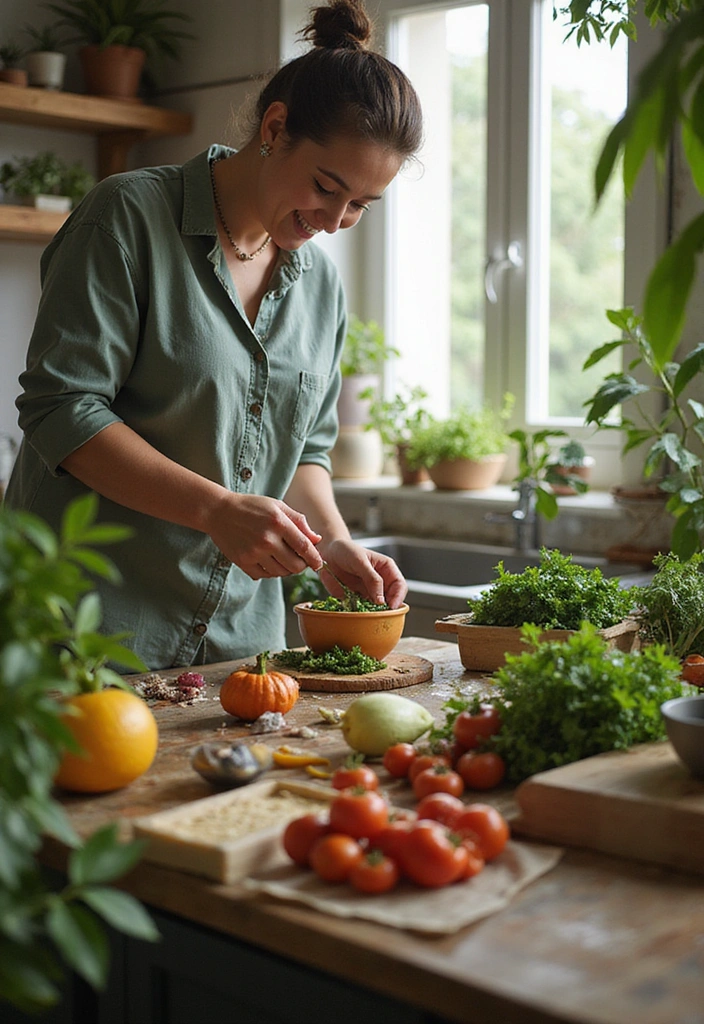
Implementing sustainable food practices in your daily life can lead to healthier eating and a greener planet.
By making conscious choices, you not only benefit your well-being but also contribute to a more sustainable food system.
Start today, and inspire others to join you on this eco-friendly journey!
Note: We aim to provide accurate product links, but some may occasionally expire or become unavailable. If this happens, please search directly on Amazon for the product or a suitable alternative.
This post contains Amazon affiliate links, meaning I may earn a small commission if you purchase through my links, at no extra cost to you.





Leave a Reply